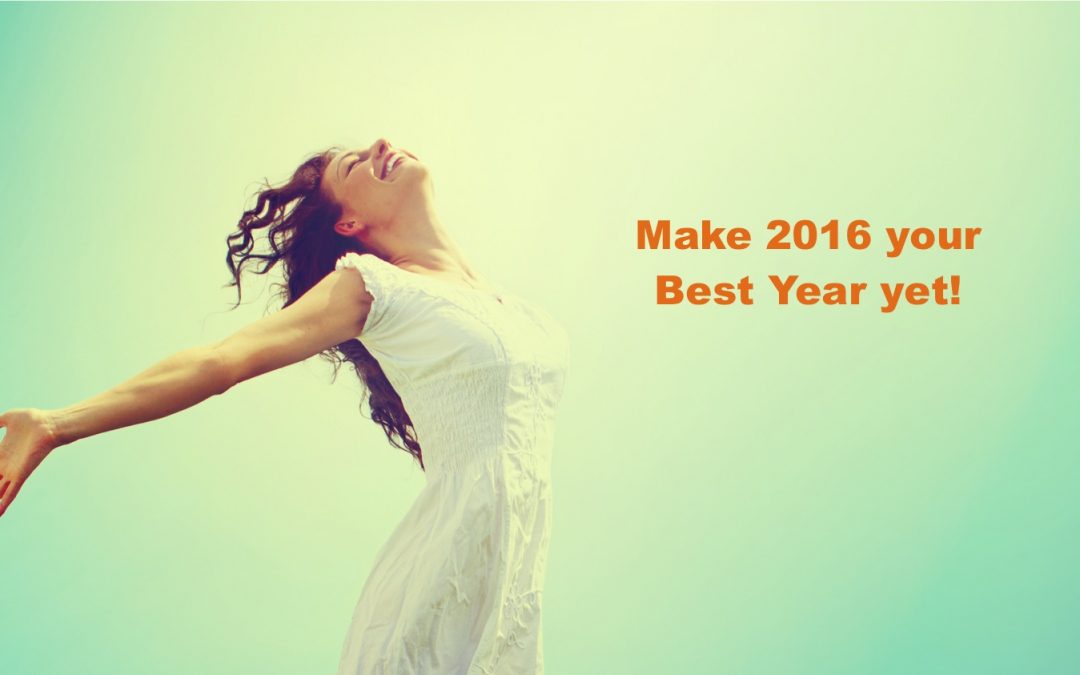
by pam | Dec 6, 2015 | Conscious Living, Creative Living, High Achieving Women, Proven strategies, Women in Business
 December is a great month to reflect on your achievements from the current year and to set intentions for the coming year. According to William Bridges[1] (based on 30 years of research), in order to move successfully from one life transition to another, it is important to let go of any negative emotions associated with it, to celebrate the positive aspects and lessons learned from it… and to get clear on your vision for a new relationship, career, business … . The end of a year may be considered the ending of a transition and the start of a new year, a new beginning.
December is a great month to reflect on your achievements from the current year and to set intentions for the coming year. According to William Bridges[1] (based on 30 years of research), in order to move successfully from one life transition to another, it is important to let go of any negative emotions associated with it, to celebrate the positive aspects and lessons learned from it… and to get clear on your vision for a new relationship, career, business … . The end of a year may be considered the ending of a transition and the start of a new year, a new beginning.
A process that I’ve found to be extremely useful for myself, and my clients is to answer the following questions and journal about them at the end of a year and before starting a new one.
Reflections:
What are the achievements I am most proud of in 2015?
What am I most grateful for this year?
What lessons have I learned regarding relationships, work experience, my own blind spots … over the past year?
Intentions:
What are my intentions for 2016 (in five areas)?
- Personal life – i.e. What my personal life looks and feels like. Note that it is important to write your intentions in the present tense as if you have already accomplished them. For example; “I am strongly connected to myself, my gifts, my fears, my strengths. I courageously uncover any and all fears, doubts and limiting beliefs that are holding me back from standing in my true power and fulfilling my larger vision and mission … .”
- Related to my Health – e. What my health looks and feels like. “I feel great! My body is toned, strong and flexible. I radiate health and vitality – physically, emotionally, socially and spiritually. I do yoga and meditate regularly and live a life of balance.”
- Financial – e. What my financial life looks and feels like. “ I average $_______ thousand a month in terms of income generation through Creative Life Coaching. I feel financially free and serene. I pay off my credit cards every month and my line of credit is paid off. … “
- Spiritual – i.e. What my spiritual life looks and feels like. “I continue to meditate daily and deepen my ability to go within and connect with the Universal wisdom. I continue to strengthen and listen to my body’s wisdom. … “
- Intellectual – i.e. What my intellectual life looks and feels like. “I am flexible, flowing and open to new ideas. I connect with my creativity easily and effortlessly. … I write and publish my first book on Creative Living this year, have a successful book launch and sell out my first printing very quickly… .”
I encourage you to experiment with the process above. Feel free to change the titles of the 5 areas suggested to ones that resonate for you. Reviewing your intentions quarterly and noting how you’re doing in relation to them, helps keep them top of mind and provides encouragement to move forward. Using your intentions as a “touch stone” at the end of each year to review your achievements is helpful.
Celebrating your accomplishments feels so good and is important to provide you with the energy and commitment to move forward and fulfill your intentions.
Best of luck reflecting on 2015 and setting bold intentions for 2016. To your health, happiness, fulfillment and inner peace!
I welcome your comments below and appreciate you sharing this post.
[1] Bridges, William. Transitions – Making Sense of Life’s Changes. Cambridge: De Capo Press, 2004.

by pam | Oct 8, 2015 | Beliefs & Values, Conscious Living, Creative Living, High Achieving Women

Source: “deposit photos” – http://depositphotos.com/8148540/stock-photo-backpacker.html
When I first launched my coaching practice that initially focused on supporting people through various life transitions, I attracted a number of women with various physical ailments from lack of sensation to pain in different parts of their bodies. When I took them through an exercise to help them to clarify their top five core values, an interesting thing happened; for almost all of them a “light bulb” went on. They realized they were in a job or a relationship that was severely out of alignment with one or most of their top five core values.
So what are values and why are they important?
Values are the beliefs and principles that are at the core of our being. We learn them from our parents, from people who have had a significant impact on our lives, and from our life experiences. They “determine” our perceptions of and reactions to people, situations and events in our lives.
Personal values
Personal values might include achievement, commitment, contribution, connection, integrity, or family. If you are a High Achieving Woman, it is important that you set goals and achieve them on a regular basis in order for you to feel good about yourself. If “contribution” is one of your core values, feeling that you are contributing and making a difference in the world positively affects your well-being.
Have you ever met someone and after having a short conversation with them felt uncomfortable? When someone steps on or pushes up against one of your core values, you may feel uncomfortable, or angry, or protective of another. For example, if “social justice” is important to you, when you see someone behaving disrespectfully to an individual from another cultural group, something fires inside you and you naturally want to stand up for the individual. Getting clear on your personal values helps you better understand yourself and your reactions to others.
Knowing your top five core values also assists with your life choices. If you choose a business partner who is all about competition and you value collaboration, over time this will bother you. If you value connection and are not able to openly communicate about feelings with a friend or partner, over time the relationship won’t grow stronger as you will feel something is missing or that you need more.
In summary, identifying your top five core values is critical to better understanding yourself and your reactions to certain individuals and situations. Using your core values to assist you in choosing a partner, career or workplace is essential to creating a life of health, happiness, true fulfillment and inner peace.[1]
How have your core values influenced you and your choices? I welcome your comments below.
[1] This is an excerpt from my book Learning to Dance with life: A Guide for High Achieving Women available here: www.amazon.com/dp/B0145ZGDO2

by pam | Nov 25, 2014 | Beliefs & Values, Conscious Living, Entrepreneurship

What I’ve learned from my own journey and working with clients, is that to be happy, healthy and fulfilled, it is important to reclaim and “own” all parts of ourselves. One way to do this is to identify and embrace the multiple roles we play.
Here’s a short exercise. How would you categorize yourself? Check each of the following that apply to you: a) Consultant; b) Entrepreneur c) Academic; d) Coach; e) Mentor; f) Manager; g) Executive; h) Mother; i) Daughter; j) Sister; k) Partner; l) Other (please add something if none of the above apply to you or if you wish to add something else)

What thoughts ran through your head as you answered the question above? You may have realized the multiple roles you play in your business and in your life. No wonder you feel like there are never enough hours in the day! You may have identified one or several roles/parts of yourself that you have never really acknowledged or “owned”. Why is that? Perhaps there is a limiting belief you have about that role that you’d like to explore further?
To illustrate the importance of reclaiming and owning all parts of ourselves, I’d like to share with you a personal story. What I came to realize is that I hadn’t owned the fact that I am an entrepreneur until about 12 months ago; even though I have started up and run 2 successful management consulting businesses since the early 1990s and a coaching business since 2008.
For some reason acknowledging and claiming that I am an entrepreneur, never felt quite right. Perhaps it’s because I have worked with a lot of public sector organizations and on projects with disadvantaged groups and regions and I have a strong drive to make a positive difference in the world. When I sat for a while with my feelings about being an entrepreneur, I realized that I have indeed been an entrepreneur since I was quite young. It’s in my blood! My girlfriend and I caught and sold minnows to fishermen when I was about 9. I made bracelets out of shells and sold them. I had a lemonade stand at a young age. From age 9 to 13, I had a card and small gifts business. I would go from house to house, show people my catalogue and invite them to place orders. When they asked me what I was saving for, I said I was saving for my trip around the world. Which, I am pleased to share, I took when I was 30.
So what made me not own up to being an entrepreneur? When I “went inside “ and reflected, one of the beliefs that came up for me is that selling is not positive. I tended to equate it with “greasy, car salesmen” and I certainly didn’t feel I had a lot in common with them! After some meditating, soul searching and journaling, I changed my thinking and beliefs about being an entrepreneur and now see and feel the positive aspects of it. I know that I am here to make a positive difference in women’s lives and when I focus on that it feels much better.
Have you had a similar experience you’d like to share? How did you “own” that part of yourself? Is there a process, tool or strategy you would recommend to others to assist them in “owning and reclaiming a part of themselves”? I welcome your comments below.

 December is a great month to reflect on your achievements from the current year and to set intentions for the coming year. According to William Bridges[1] (based on 30 years of research), in order to move successfully from one life transition to another, it is important to let go of any negative emotions associated with it, to celebrate the positive aspects and lessons learned from it… and to get clear on your vision for a new relationship, career, business … . The end of a year may be considered the ending of a transition and the start of a new year, a new beginning.
December is a great month to reflect on your achievements from the current year and to set intentions for the coming year. According to William Bridges[1] (based on 30 years of research), in order to move successfully from one life transition to another, it is important to let go of any negative emotions associated with it, to celebrate the positive aspects and lessons learned from it… and to get clear on your vision for a new relationship, career, business … . The end of a year may be considered the ending of a transition and the start of a new year, a new beginning.



